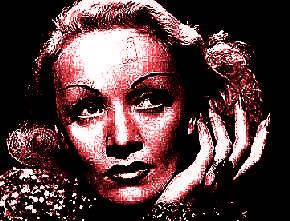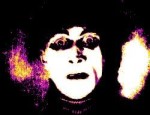Film Review

Marlene Dietrich may be the film's star attraction - and she is certainly at her seductive best, draped in eye-catching gowns that most women (and some men) would die for - but Jean Arthur gives the best performance as the appropriately named Miss Frost, a prim congresswoman who has a bittersweet taste of love in the ruins of Berlin. Dietrich may not be able to compete with Arthur at an emotional and comedic level but she still manages to delight and enchant her audience with her shamelessly sensual rendition of some memorable musical numbers. It would be ten years before the magnificent Marlene would appear in her next Billy Wilder film, Witness for the Prosecution (1957), in one of her last great film roles.
© James Travers 2008
The above content is owned by frenchfilms.org and must not be copied.
Film Synopsis
After WWII, an American government committee arrives in Berlin to carry out an investigation into the morale of US troops. Congresswoman Phoebe Frost is appalled to see American soldiers fraternising with German women, and one woman in particular - nightclub singer Erika Von Schluetow. The latter is known to have had close associations with high-ranking Nazi officials and so Miss Frost enlists the help of GI John Pringle to establish why she hasn't been indicted, not knowing that Pringle is the man who is protecting her...© James Travers
The above content is owned by frenchfilms.org and must not be copied.
Similar Films
Here are some other films you may enjoy watching:- Le Paquebot Tenacity (1934)
- Les Premiers outrages (1955)
- Partie de campagne (1936)
- Monsieur Ripois (1954)
- Roman Holiday (1953)
Other related links:
Film Credits
- Director: Billy Wilder
- Script: Charles Brackett, Billy Wilder, Richard L. Breen, Robert Harari, David Shaw (story)
- Cinematographer: Charles Lang
- Music: Friedrich Hollaender
- Cast: Jean Arthur (Phoebe Frost), Marlene Dietrich (Erika Von Schluetow), John Lund (Captain John Pringle), Millard Mitchell (Col. Rufus J. Plummer), Peter von Zerneck (Hans Otto Birgel), Stanley Prager (Mike), William Murphy (Joe), Raymond Bond (Pennecot), Boyd Davis (Giffin), Robert Malcolm (Kramer), Charles Meredith (Yandell), Michael Raffetto (Salvatore), Damian O'Flynn (Lieutenant Colonel), Frank Fenton (Major Mathews), James Larmore (Lieutenant Hornby), Harland Tucker (General McAndrew), Bill Neff (Lt. Lee Thompson), George M. Carleton (General Finney), Gordon Jones (Military Police), Freddie Steele (Military Police)
- Country: USA
- Language: English / German
- Support: Black and White
- Runtime: 116 min
Kafka's tortuous trial of love

The very best of German cinema

The very best American film comedies
